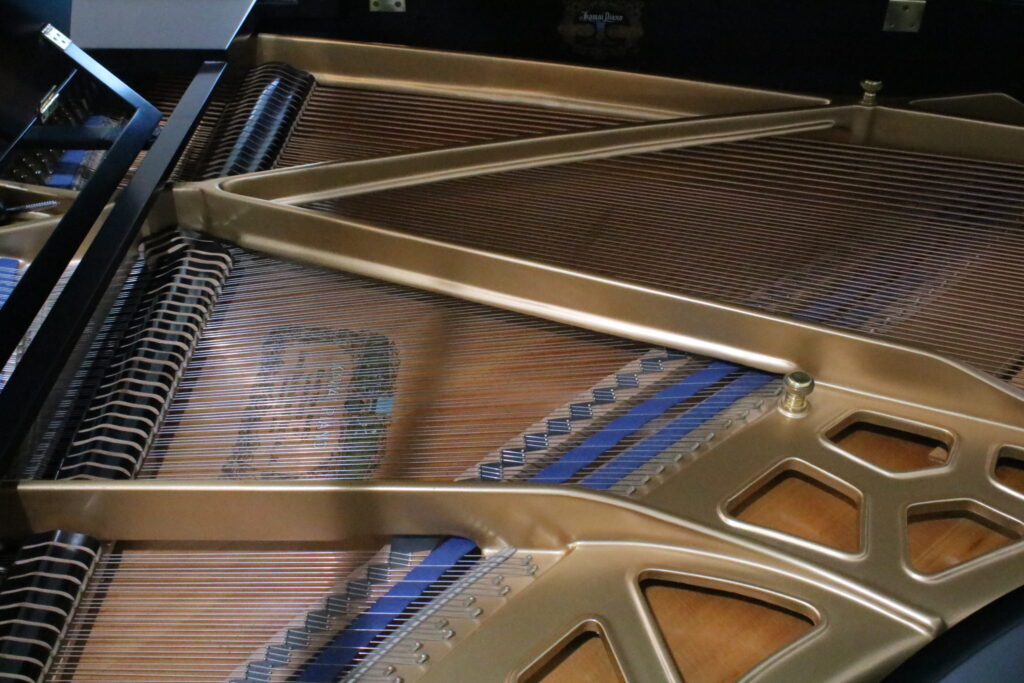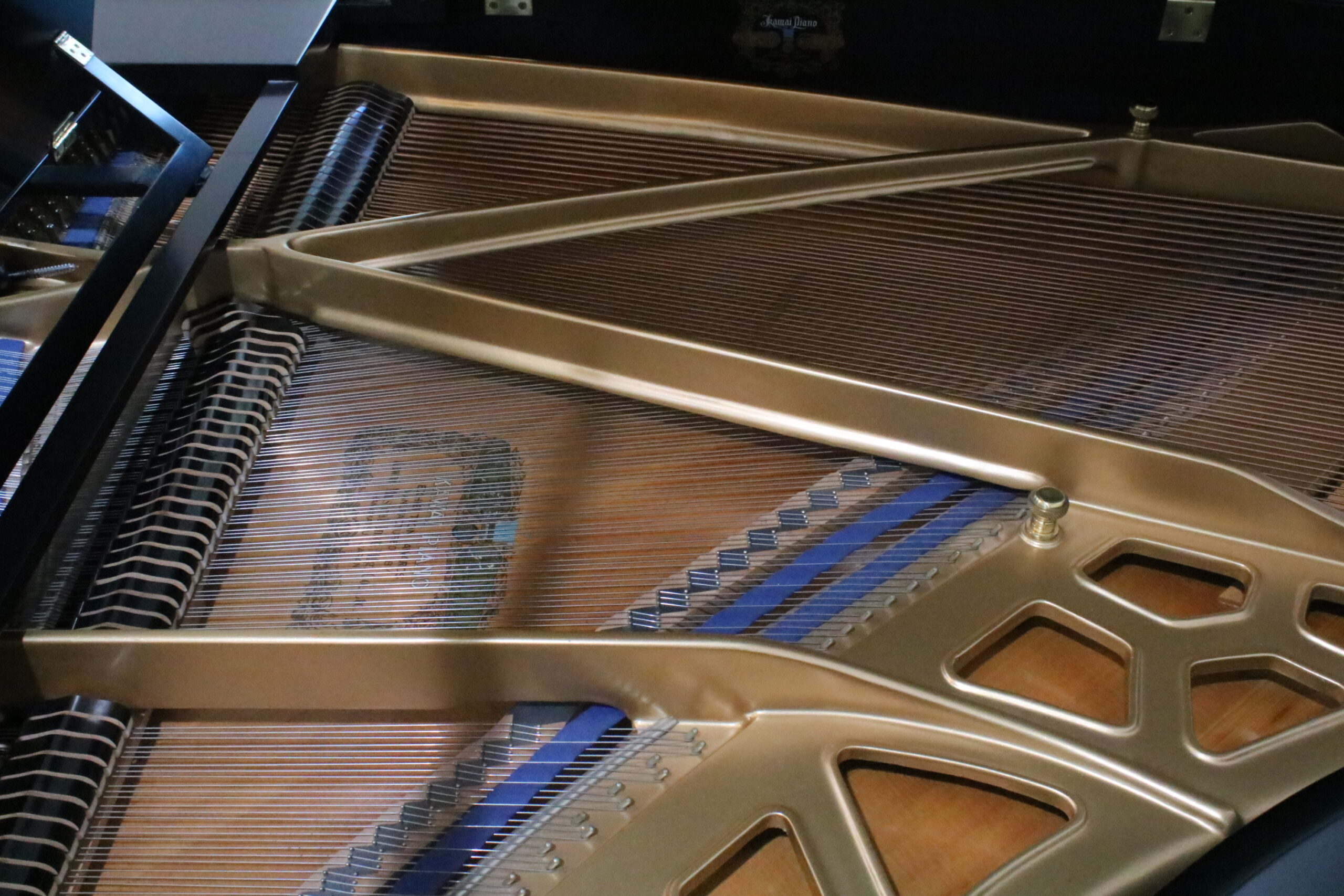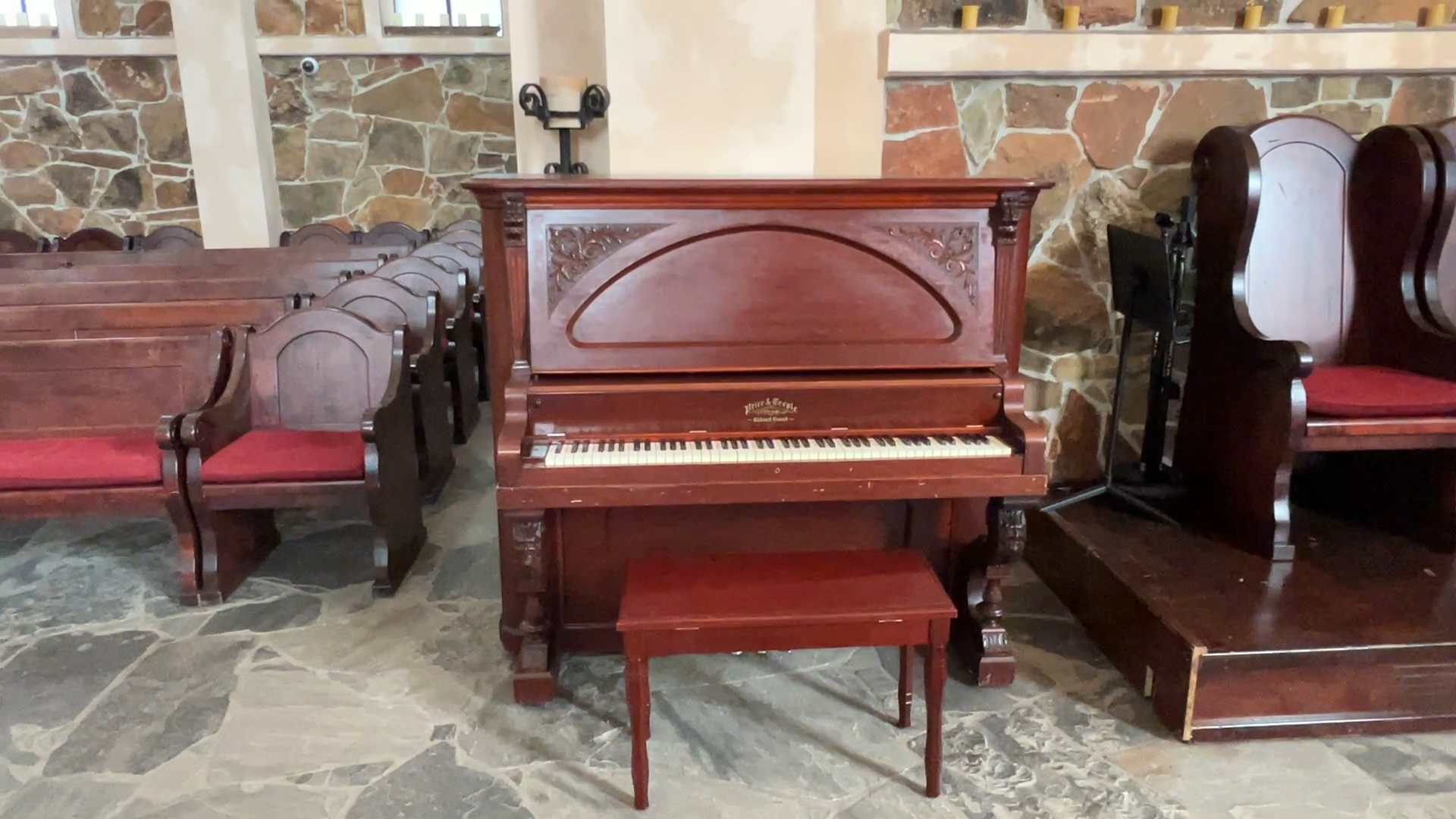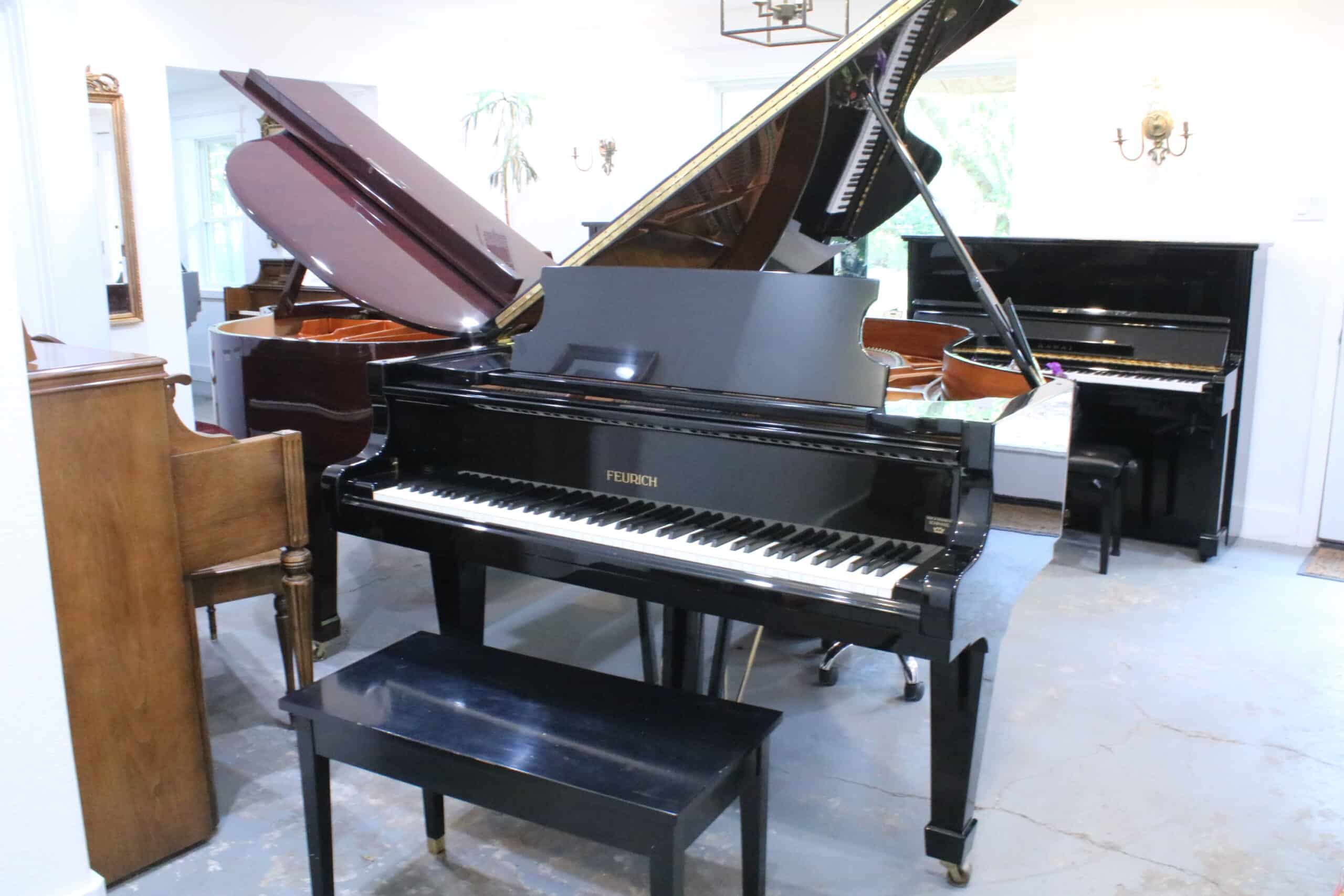We thank our clients for having trusted us with their piano care
Here are some additional insights to ensure the longevity of your piano’s performance and appearance:
Your piano is an investment that requires care to preserve its beauty and sound. Here are some expert tips to keep your instrument in top shape:

Do you have a noisy pedal? It might be possible repair yourself with the right product. Here is a link to a product that can be used for lubricating the pedal joints.
If you’d like our help let us know when we tune your piano.
Does your piano need a good dusting? We offer grand and upright cleaning services, including under the keys, under the strings, and pedal polishing. We advise cleaning your piano every 10-15 years. If has been multiple years, we can provide a deep clean.
With regular tuning you can ensure your piano sounds clean, clear, and responds correctly.
Regulation is the process of adjusting the moving parts to make the keys respond as they would new from the factory, or if the piano is older, as close as possible.
Voicing is the process of softening or hardening the hammers, to make them more pleasing to the ear. This service can be carried out after the piano has been tuned.
Hammers are made from lambs wool. At the factory a liquid hardener is applied, which makes the felt harder, as they are generally soft sounding when new. Over time the sound can become brighter, a brash unpleasant sound. Hammer softener can work in some cases (see the video on the right), in other cases detailed needling work is required to soften the hammers with more detail. Needling is recommended on higher end pianos with German Abel or Renner hammers.
By maintaining a constant humidity in your home, you can help your piano stay in tune for longer. It may be worth running your AC unit reflecting humidity more than simply heat. If you use a Hygrometer, you can measure the amount of humidity in a room, some more modern devices can keep a record for the rooms humidity over time, avoid high fluctuations!
Have your piano tuned after the climate in your city shifts from season to season. As the piano will adjust a few weeks to a couple of months into a temperate change.
A lifesaver system is a device that reads the humidity and adjusts the environment inside the piano automatically. If the humidity shifts higher than a healthy amount a heat bar dries the air inside the piano. If the humidity drops, water is evaporated safely into the piano. It will help adjust larger swings, however, does not eliminate humidity change entirely. Professional institutions regularly install these as the large rooms are expensive to run AC units constantly. They can be installed at home too!



With years of experience, at the start of my career, I learnt to tune purely by ear for the first few years. It was good ear training, and helped me associate pitch without the comfort of needles on screens measuring for me. However, we do use apps to support our aural perception. If you don’t use an app to measure pitch, I’ve noticed tunings can have incorrect stretches, as the reference notes change.
Old pianos can have hard-to-see corrosion in the small parts that hold either the action nor the strings in place. Piano wire is held at a specific pitch by tuning pins. In some cases, these tuning pins can become loose. The block of wood beneath the 200+ tuning pins can crack, often in a line across multiple pins, making them untunable. Repairing this issue is extensive and involves removing the action, strings, all the pins, and the plate. This process can cost thousands of dollars. Without this repair, the tuning will not last more than a day, or sometimes only minutes.
Music adheres to a standard pitch (A440), which allows a pianist to play in harmony with a guitarist, the radio, or Spotify. From the day the piano is manufactured, the strings exert tension against the pins holding them in place. This tension causes a minute unraveling of the strings. Additionally, the soundboard and bridge sway with humidity, stretching the strings. This unraveling and stretching change the speaking length of the strings.
A shift in the speaking length of a string creates a variation in pitch. Initially, this shift is mild, producing a chorus effect. As long as the strings remain close in pitch, the sound is still pleasant. However, the greater the pitch difference between strings, the more noticeable and unfavorable the sound becomes.
When you notice undesirable wavering between notes, it’s time to tune your piano! (Or when the pitch starts to drop more than -5 cents from A440.)
——–
After many years of suggesting ‘wait 2-3 months,’ I now have a more comprehensive answer.
If the piano was tuned regularly before moving and sounded good, then wait 3-6 months, no more. If the piano sounds very out of tune, such as one purchased from a private seller who hadn’t played it for multiple years, go ahead and get it tuned straight away if it’s stopping you from playing. Then, have it tuned again within the next 6 months. It may not stay in tune as long initially, but you can start playing right away.
Common issues may include off-tuning, sticky keys, or silent notes. Regular maintenance can prevent these from occurring.
Booking a tuning is easy—simply contact us through our website or phone for scheduling at your convenience.
If you need to reschedule, just let us know as soon as possible, and we’ll arrange a new time that works for you.
Tuning typically takes about an hour and a half, but this may vary depending on the condition of your piano.
Still have additional questions? Don’t hesitate to reach out to us for personalized assistance. We’re here to help ensure your piano remains a source of joy for years to come!
NOTE: We are not responsible for cracked frames (a sign of extreme conditions/age), or broken strings (a sign of rust/age).

We love pianos, the history, the small parts, the sounds, we love it all.
© All Rights Reserved.